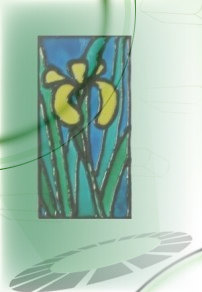


 |
the buddha, the sage and the traveller Here is a story I heard someone tell once. It stuck in my memory, like one of those aromas that wafted in during a walk along a country lane in childhood, wafted in and got buried, until one day, a smell of elderflower blossom, and the memory breaks through and turns everything into itself. It’s been like that with this story – some little thing happens, not even happens, really, just a wrinkle in the way I am looking at something, and all of a sudden they are back, those venerable figures with the wisdom of centuries. >> One day the buddha was sitting by a lake, looking out across the still water. It was a fine day and there was the gentlest whisper of a breeze, just enough so that the sun didn’t feel too hot, just enough to rustle the grass growing at the water’s edge, just enough to raise the smell of the warm baked earth into the air, just enough to carry the faintest tinkle of goat bells from the hills in the distance, just enough for all those things to be with the buddha as he sat by the lake… just enough and no more. As he was sitting, a traveller came along the path and stopped a few paces away. He waited for the buddha to look up and greet him, but the buddha just sat looking out across the lake. After a while the traveller noticed himself becoming irritated and then annoyed and in the end quite angry, until he could contain himself no longer and burst out to the quietly sitting buddha: “What is this? Here we are, the only two people for miles around and you haven’t even the common courtesy to pass the time of day.” The buddha replied: “Sit here a while and let the breeze take away your anger. You are angry because you think you are important. But here there is nothing more important than the breeze.” The traveller was puzzled by this answer, but he felt uncomfortable for shouting at the stranger, so he sat and waited, and, little by little they came to him - the sun just warm, the rustling of the grass, a smell of baked earth, goat bells tinkling in the distance. As the sun passed overhead he felt calm and rested and refreshed so that finally he decided he would continue his journey. So he got up and started to walk away from the buddha, who was still sitting. And the buddha said: “Will you not take your leave?” The traveller replied: “There is no-one to take leave.” A little further on, the traveller could see ahead and noticed that his path was soon to be joined by another, and, glancing across to where the other path was approaching, he could see an old man walking steadily in the same direction. He looked wise, like an elder of some ancient faith. A few minutes more and their steps coincided on what now became one path. This time the traveller felt no irritation or awkwardness as he silently fell in step beside his new companion. In a little while the silence was broken. “You have come from the buddha”, said the sage. “How do you know that?” asked the traveller. “Everyone who comes along this path has passed the buddha.” After a few moments the sage spoke again: “What did you learn?” “I learnt about stillness and about being one in the world.” “And will you hold on to that?” “I will try.” “And how will your ‘one in the world’ encounter others?” The traveller fell silent. Before he had sat with the buddha, he could have answered that, but now nothing from before seemed to fit. The sage stopped walking and turned towards the lake. “Look at the lake”, he said, “what colour is it?” “Blue”, answered the traveller. The sage walked on. “No, the lake is a mountain tarn, it is very deep and in its depths there is no light. The lake is black, it is the sky which is blue. So does the sky make the lake blue? The sky is just there, it knows nothing of the lake. The lake knows nothing of the sky. But being together they are blue.” As the sage talked, they had come to where the path became two again. The sage took one and the traveller knew he must take the other. After a few steps, the sage looked across to him, raised his hand in farewell and said: “Being, just being, with another is enough.” |
|
|
|
|
|
|||||||||||||||||||||||||||
|
|
|
||||||||||||||||||||||||||
|
|
|||||||||||||||||||||||||||
| Site Map |